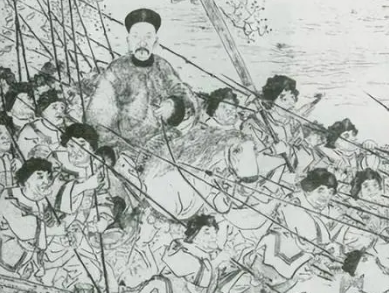The Ming Dynasty played a significant role in Chinese history, with a prominent feature of its foreign policy being the implementation of a maritime embargo lasting for more than two centuries. This policy had a profound impact on the Ming Dynasty's foreign trade and international relations. This article will explore the reasons for the Ming Dynasty's implementation of the maritime embargo policy and when it was abolished.

I. Background and reasons for the maritime embargo policy
The maritime embargo policy referred to a series of decrees issued by the Ming government to control maritime trade and prevent foreign invasion by prohibiting private maritime navigation and trade. The main reasons for the implementation of the maritime embargo in the early Ming Dynasty were as follows:
1. Defense against pirates: In the early years of the Ming Dynasty, coastal areas were frequently disturbed by pirates. To reduce these attacks, the Ming government adopted measures to restrict maritime activities.
2. Control of foreign trade: The Ming government hoped to control foreign trade through an officially monopolized tributary trade system, aiming to prevent instability caused by private trade activities.
3. Maintenance of social stability: The maritime embargo policy was also aimed at preventing piracy and illegal immigration, safeguarding social order in coastal areas.
II. Abolition of the maritime embargo policy
The maritime embargo policy reached its peak during the Jiajing period of the Ming Dynasty. However, over time, the disadvantages of the policy became apparent, such as its impact on normal economic activities and people's livelihoods. Eventually, in the first year of the Longqing period (1567), the Ming government announced the abolition of the maritime embargo policy. This decision was driven by the growing economic demand for foreign trade and a deepening understanding of overseas trade by the Ming Dynasty.
Conclusion:
The maritime embargo policy of the Ming Dynasty emerged against a specific historical background, reflecting the attitude of the Ming government towards maritime trade and national security. With the development of the times and changes in the international environment, the abolition of the maritime embargo policy in the late Ming Dynasty marked an important transition in China's opening up to the outside world. This transition not only promoted economic prosperity but also laid the foundation for the later Qing Dynasty's opening up of maritime trade and foreign relations.
Disclaimer: The above content is sourced from the internet and the copyright belongs to the original author. If there is any infringement of your original copyright, please inform us and we will delete the relevant content as soon as possible.
































